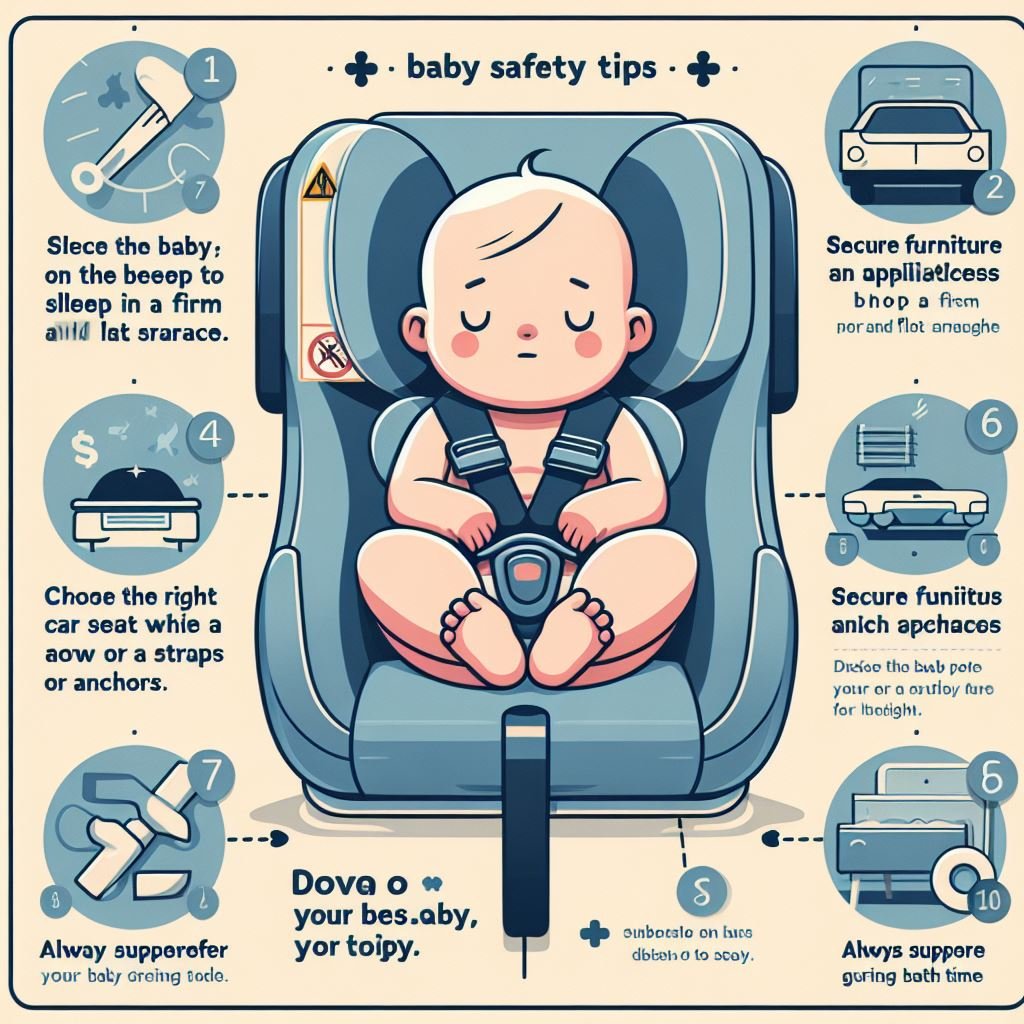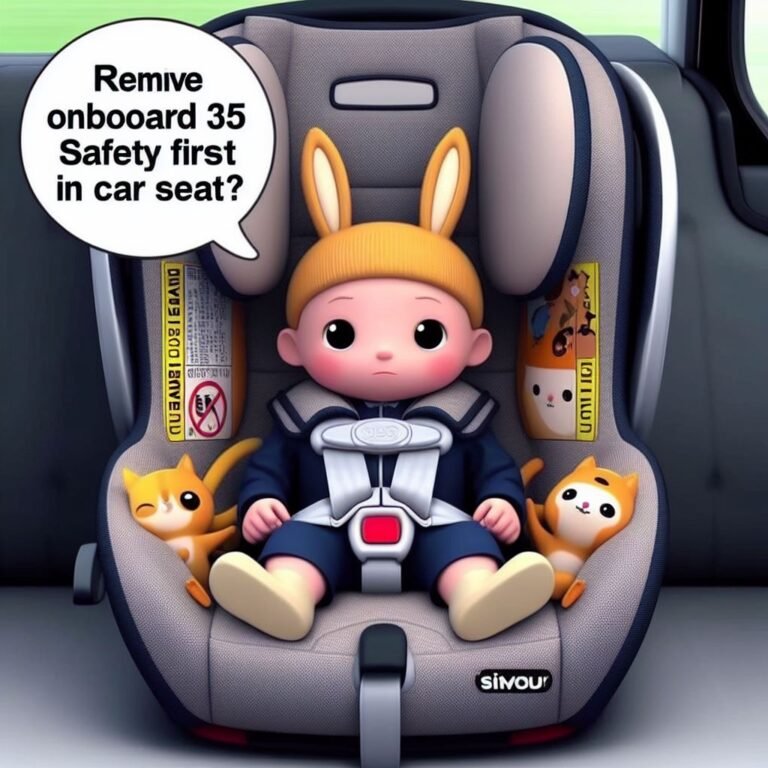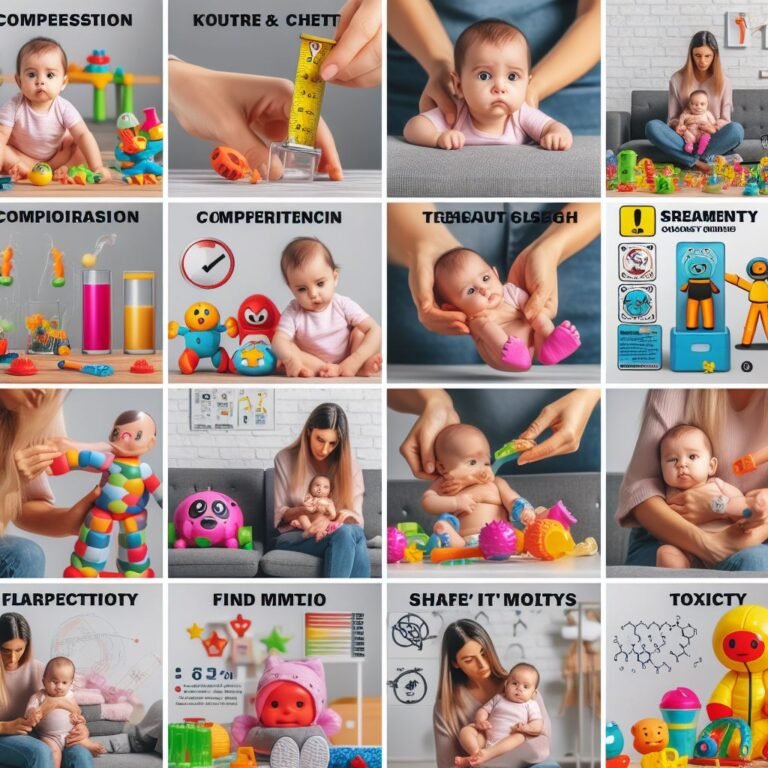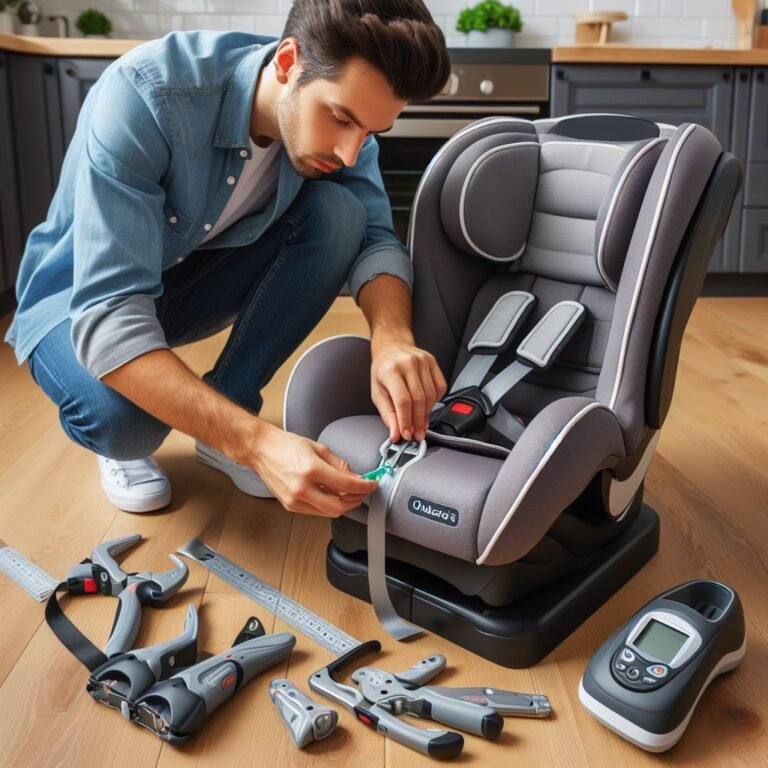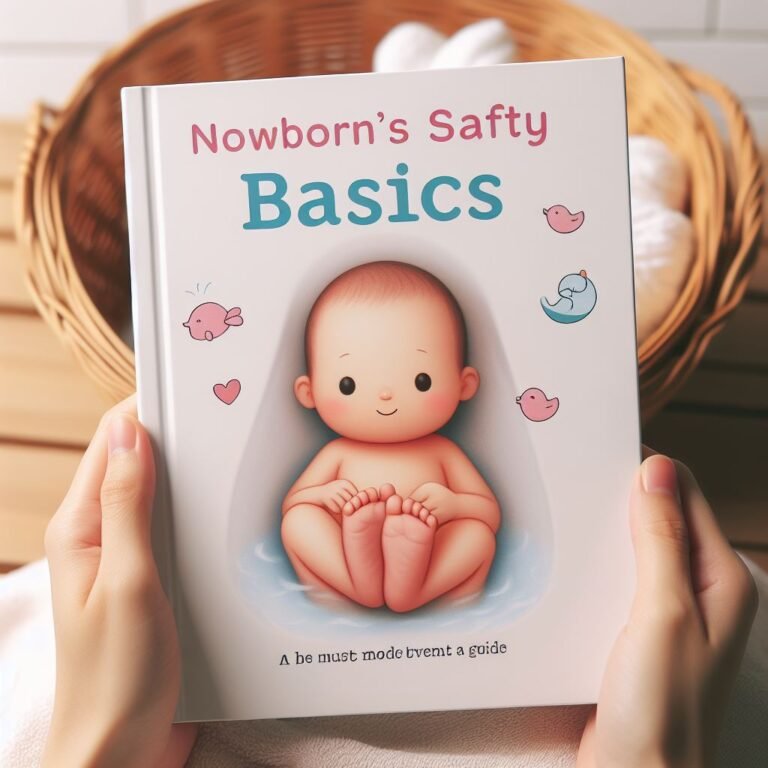What Are 10 Baby Safety Tips
In a world where the well-being of our little ones takes precedence, it becomes imperative to equip ourselves with the knowledge and tools necessary to ensure their safety.
Welcome to an article that delves into the realm of baby safety, offering invaluable baby safety tips to safeguard the precious lives entrusted to our care.
From creating a secure sleeping environment to childproofing our homes, this professional guide aims to empower parents and caregivers in their noble endeavor of serving and protecting the vulnerable.
Key Takeaways for Baby Safety Tips
- Place the baby on their back to sleep on a firm and flat surface.
- Secure furniture and appliances with straps or anchors.
- Choose the right car seat based on age, weight, and height.
- Always supervise your baby during bath time.
Safe Sleep Practices for Baby’s Safety
What are the key considerations for ensuring safe sleep practices for babies?
When it comes to the safety of babies during sleep, there are several important factors for baby safety tips to consider.
First and foremost, it is crucial to create a safe sleep environment for infants. This includes placing them on their backs to sleep, on a firm and flat surface, and ensuring that there are no loose bedding or pillows nearby.
Additionally, it is important to keep the room at a comfortable temperature and to avoid overheating the baby. Another key consideration for baby safety is the use of a sleep sack or wearable blanket instead of loose blankets, which can pose a suffocation risk.
Regularly checking on the baby during sleep is essential, and avoiding sharing a bed with the baby is highly recommended to prevent accidental suffocation or strangulation.
Babyproofing Home for Children
To effectively babyproof a child’s home, it is important to start by thoroughly assessing potential hazards and implementing safety measures. Here are some baby safety tips to ensure baby safety in a safe environment for your baby:
- Secure furniture and appliances: Use furniture straps or anchors to prevent tipping over.
- Install safety gates: Block off areas like stairs or rooms with hazardous items.
- Cover electrical outlets: Use outlet covers or safety plugs to prevent electrocution.
- Secure cords and blinds: Keep them out of reach or use cordless window coverings.
- Lock cabinets and drawers: Use childproof locks to prevent access to harmful substances or sharp objects.
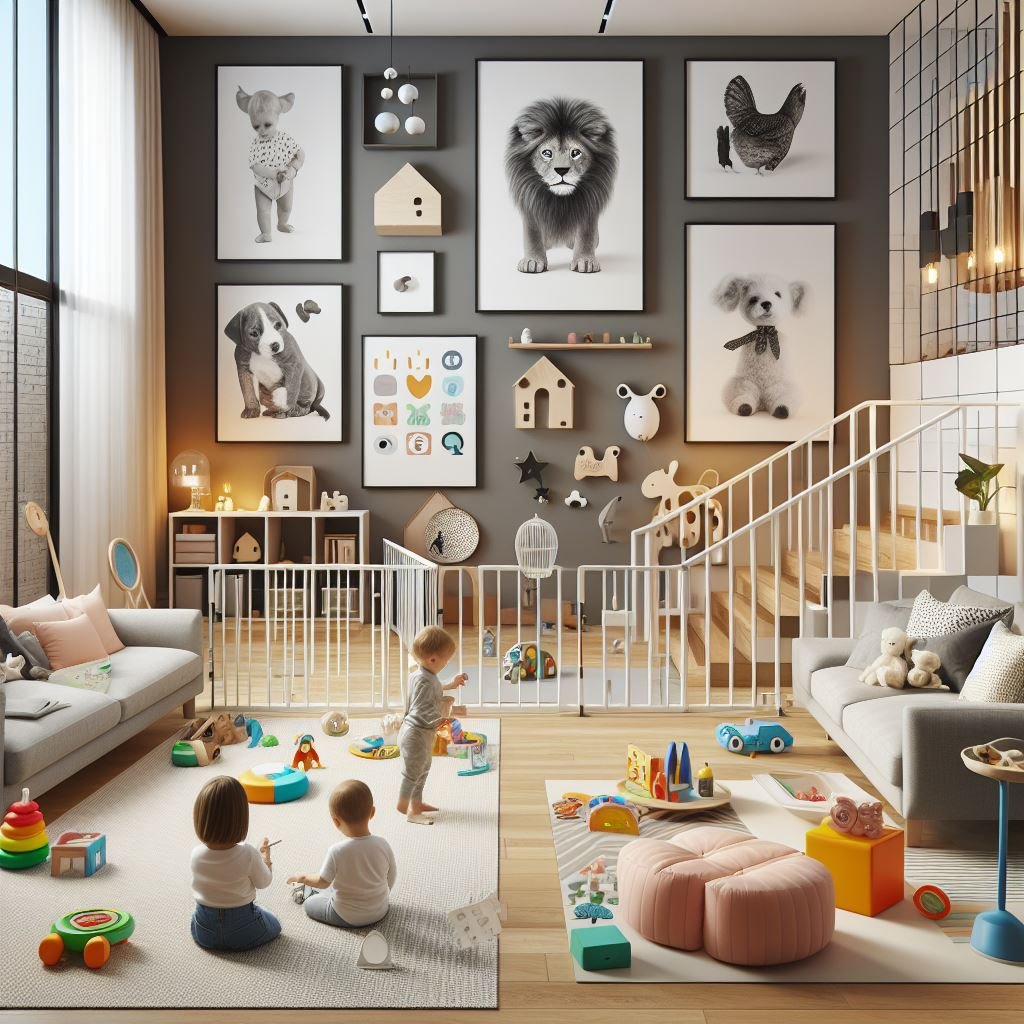
By following these babyproofing baby safety tips, you can create a secure space where your little one can explore and grow safely.
Baby Safety Tips for Preventing Falls
When it comes to ensuring the safety of your baby, taking proactive measures to prevent falls is crucial. Babies are curious and mobile, making them prone to accidents. To keep your little one safe, it is essential to create a safe environment that minimizes the risk of falls.
Start by securing furniture and appliances to the wall to prevent tipping. Use safety gates to block off staircases and other hazardous areas. Keep floors clear of clutter and secure loose rugs. Install window guards and ensure windows are locked. Use baby monitors to keep an eye on your child, especially during naptime and at night.
Baby Car Seat Safety
Ensuring proper baby car seat safety is of utmost importance for protecting your child while traveling. Here are some safety tips to help you keep your baby safe in the car:
- Choose the right car seat: Make sure it is appropriate for your baby’s age, weight, and height.
- Install the car seat correctly: Follow the manufacturer’s instructions and use the seat belt or LATCH system to secure it properly.
- Position the car seat correctly: place it in the back seat, facing the rear, until your baby reaches the weight or height limit.
- Harness your baby properly: Ensure the straps are snug and positioned at or below your baby’s shoulders.
- Regularly check the car seat: Inspect it for any signs of damage or wear and tear.
Baby Safety Tips for Poison Prevention
Ensuring the safety of your baby from potential poisoning risks is essential, so it is important to take the necessary precautions.
Babies are curious and often explore their surroundings by putting things in their mouths, which puts them at risk for accidental poisoning. To prevent this, it is crucial to keep all harmful substances out of their reach. Store medications, cleaning products, and chemicals in locked cabinets or high shelves.
Be cautious when using common household items, such as laundry detergent pods, which can be mistaken for toys. Additionally, always read and follow the instructions on product labels carefully.
In the event of accidental poisoning, contact the Poison Control Center immediately. Being vigilant and proactive about poison prevention will help keep your baby safe and healthy.
Baby-Safety Bathing Techniques
To ensure the safety of your baby during bath time, it is important to follow safe bathing techniques. Here are some tips to help you provide a secure and enjoyable bathing experience for your little one:
- Always supervise: Never leave your baby unattended during bath time.
- Check water temperature: Test the water with your wrist or elbow to ensure it is not too hot or cold.
- Use a non-slip mat: Place a non-slip mat in the tub to prevent your baby from slipping.
- Secure the area: Keep all bath essentials within reach and ensure the bathroom floor is dry to avoid accidents.
- Gentle handling: Handle your baby with care and support their head and neck during the bath.
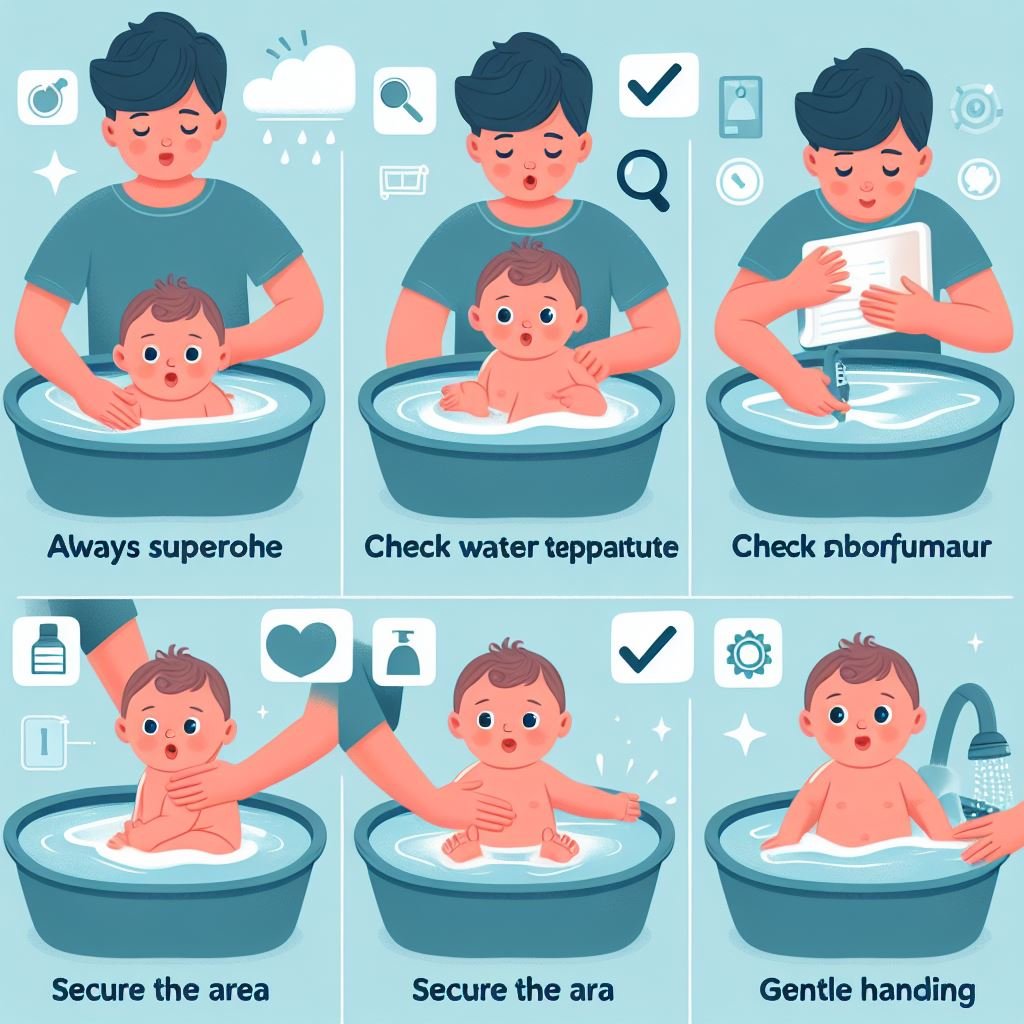
Childproofing Electrical Outlets
Childproofing electrical outlets is an essential step in ensuring baby safety at home. Electrical outlets can pose a significant risk to young children, who are naturally curious and prone to exploring their surroundings. To prevent accidents, it is important to childproof all electrical outlets in your home to ensure baby safety.
One effective way to do this is by using outlet covers or safety caps. These devices are designed to cover the outlets completely, making it difficult for little fingers to access the electrical components.
It is also recommended to use outlet plates that have built-in tamper resistance, as they provide an extra layer of protection.
Choking Hazards and Prevention
Choking incidents are a serious concern for parents, necessitating awareness and proactive measures to ensure the safety of their babies.
Here are some important baby safety tips to prevent choking hazards:
- Be mindful of small objects: Keep small items like coins, buttons, and batteries out of your baby’s reach.
- Cut food into small pieces : When introducing solid foods, make sure to cut them into tiny, easily manageable pieces.
- Avoid hard or round foods : Foods like nuts, grapes, and popcorn can be choking hazards. Either avoid them or cut them into small pieces.
- Be cautious with toys : Choose age-appropriate toys that do not have small parts that can be easily swallowed.
- Keep an eye on your baby : Always supervise your baby during mealtime and playtime to quickly address any choking incidents.
Baby Safety Tips in the Kitchen
How can parents ensure their baby’s safety in the kitchen?
The kitchen can be a dangerous place for babies, with potential hazards like hot surfaces, sharp objects, and toxic substances. However, with proper precautions, parents can create a safe environment for their little ones.
Firstly, never leave a baby unattended in the kitchen, especially when cooking. Keep all sharp objects, such as knives and scissors, out of reach or locked away in a secure cabinet. Install safety gates to prevent access to the kitchen area when not supervised.
Store all cleaning products and chemicals in locked cabinets or high shelves. Keep hot beverages and pots away from the edge of countertops.
Baby Safety on the Go
Baby safety tips while traveling require careful attention to car seat installation and proper use. Traveling with a baby can be challenging, but with the right safety measures in place, it can also be enjoyable and stress-free. Here are some important tips to keep your baby safe on the go:
- Always use a properly installed car seat that is appropriate for your baby’s age and size.
- Secure your baby’s safety in the car seat with the harness straps snugly fastened.
- Avoid placing bulky items in the car that could become projectiles in the event of a sudden stop or crash.
- Never leave your baby alone in the car, even for a short period of time.
- Be prepared with essential items such as diapers, wipes, and a change of clothes to handle any unexpected situations for baby safety.
Frequently Asked Questions
What are the tips for baby safety?
How Do I Choose the Right Baby Car Seat for My Child’s Age and Weight?
When choosing a baby car seat, it is essential to consider your child’s age and weight. Look for seats that meet safety standards, provide proper support, and fit securely in your vehicle. Follow the manufacturer’s guidelines for installation and use.
What Are the Common Choking Hazards That Parents Should Be Aware Of?
Parents should be aware of common choking hazards when it comes to their baby’s safety. Small objects like coins, buttons, and small toys can pose a risk. It is important to keep these items out of reach to prevent choking incidents.
How Can I Make My Kitchen Safe for My Baby?
To ensure the safety of your baby in the kitchen, it is important to take certain precautions. This includes keeping hazardous items out of reach, securing cabinets and drawers, using stove guards, and being vigilant while cooking.
What Are Some Baby Safety Tips for Traveling with a Baby?
When traveling with a baby, it is important to prioritize safety. Some tips include using a properly installed car seat, bringing essential items like a first aid kit, and being mindful of the baby’s surroundings to avoid potential hazards.
Conclusion
In conclusion, implementing the baby safety tips is crucial to protecting infants from potential hazards. By following baby safety tips, safe sleep practices, babyproofing the home, and preventing falls, parents can create a secure environment for their little ones.
Additionally, proper use of baby car seats, childproofing electrical outlets, and practicing poison prevention can further ensure their babies safety. For example, a case study showed that by installing safety gates at the top and bottom of stairs, the incidence of falls among toddlers significantly decreased, preventing potential injuries.
